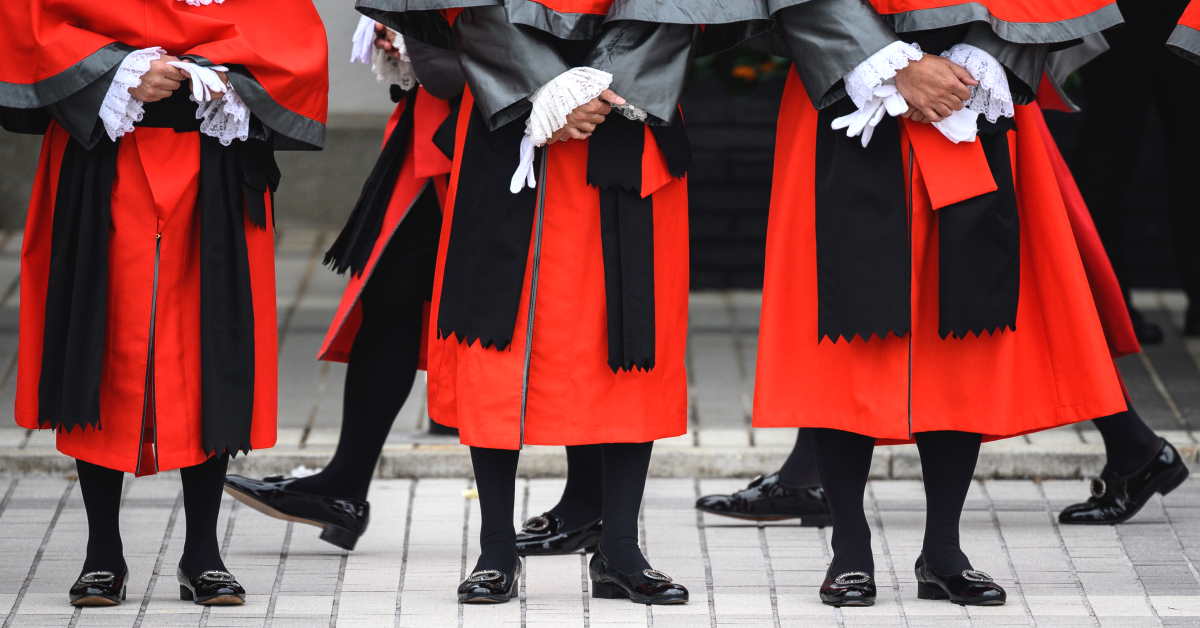Two United Kingdom (UK) Supreme Court judges resigned from Hong Kong's top court on Wednesday, as the government in London said it was "impossible" for them to keep serving in the former colony famed for its hybrid legal system.
British Foreign Secretary Liz Truss said that senior UK judges continuing to occupy roles there risked "legitimising oppression", following the imposition of China's controversial national security law in 2020.
The stance taken by Britain – which handed Hong Kong back to China in 1997 – could pressure Australia and Canada, which also have judges on Hong Kong's Court of Final Appeal, to follow suit.
"The situation has reached a tipping point where it is no longer tenable for British judges to sit on Hong Kong's leading court, and would risk legitimising oppression," Truss said.
"We have seen a systematic erosion of liberty and democracy in Hong Kong," she said, noting the authorities there had "cracked down on free speech, the free press and free association".
Taking questions in parliament, Prime Minister Boris Johnson insisted the "constraints" of the 2020 legislation now made it "impossible for them to continue to serve".
Hong Kong's leader Carrie Lam said she had "no choice" but to agree to the two resignations.
"We must vehemently refute any unfounded allegations that the judges' resignations have anything to do with the introduction of the Hong Kong national security law or the exercise of freedom of speech and political freedom," she added.
Hong Kong's Chief Justice Andrew Cheung expressed regret over the withdrawals, but insisted they would not impact the functioning of its top court.
'Deteriorating'
Unlike the opaque, party-controlled legal system on China's mainland, Hong Kong has largely maintained the independent common law system that has formed the bedrock of the city's economic success.
Under its mini-constitution, known as the Basic Law, senior judges from common law jurisdictions are invited by the territory to sit as non-permanent members on the court.
Eight of the current 12 are British, with two of them also serving members of the UK Supreme Court.
"Established rights and freedoms are now sadly deteriorating, meaning Her Majesty's government can no longer endorse serving judges on the court of final appeal here," UK Consul General to Hong Kong Brian Davidson tweeted.
The Supreme Court pair – its president Robert Reed, and fellow judge Patrick Hodge – resigned from the Hong Kong court with immediate effect.
"The judges of the Supreme Court cannot continue to sit in Hong Kong without appearing to endorse an administration which has departed from values of political freedom, and freedom of expression," Reed said.
However, it was unclear when, or even if, the remaining six British judges would also resign.
A spokesman for Lennie Hoffmann, a UK peer first appointed to the Hong Kong court in 1998, said he had "taken note" of his two colleagues' resignations.
"(He) will take it into account in deciding what to do," the spokesman told AFP.
The other judges did not immediately respond to requests for comment.
In a March 2021 newspaper article, Jonathan Sumption – whose term on the court ends the soonest, at the end of this year – argued against stepping down.
"It is not a proper function of judges to participate in political boycotts. They will serve the cause of justice better by participating in the work of Hong Kong's courts," he wrote.
'Veneer Of Legitimacy'
But Nathan Law, a prominent former student protest leader and Hong Kong lawmaker who has fled to Britain, urged the remaining judges to resign "as soon as possible".
Hong Kong's Law Society, whose leadership is largely pro-government, described the two resignations as "a matter of deep regret" while cautioning against "unfair and unfounded accusations".
However, hawkish British lawmaker Tom Tugendhat said security law cases were "too often incompatible with the defence of rights that our judges were invited to uphold".
"British judges should not provide a veneer of legitimacy to a legal system that is now being used to lock up Hongkongers without due process," he added.
Johnny Patterson, policy director of the UK-based rights group Hong Kong Watch, said the latest developments undoubtedly damaged its status as an international city.
"It's a sign that you can't have your cake and eat it when it comes to the national security law," he told AFP.
